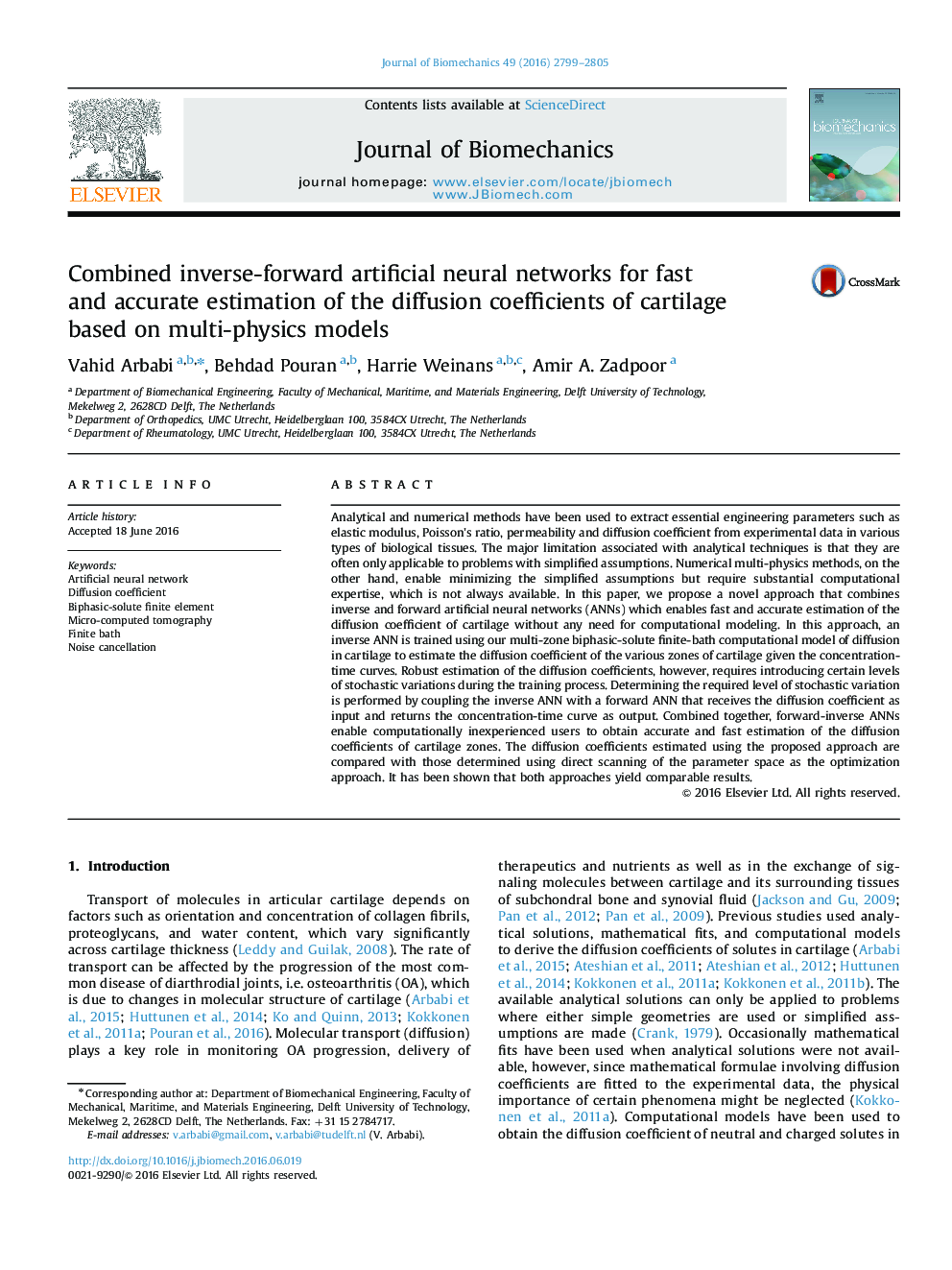| Article ID | Journal | Published Year | Pages | File Type |
|---|---|---|---|---|
| 5032455 | Journal of Biomechanics | 2016 | 7 Pages |
Abstract
Analytical and numerical methods have been used to extract essential engineering parameters such as elastic modulus, Poisson׳s ratio, permeability and diffusion coefficient from experimental data in various types of biological tissues. The major limitation associated with analytical techniques is that they are often only applicable to problems with simplified assumptions. Numerical multi-physics methods, on the other hand, enable minimizing the simplified assumptions but require substantial computational expertise, which is not always available. In this paper, we propose a novel approach that combines inverse and forward artificial neural networks (ANNs) which enables fast and accurate estimation of the diffusion coefficient of cartilage without any need for computational modeling. In this approach, an inverse ANN is trained using our multi-zone biphasic-solute finite-bath computational model of diffusion in cartilage to estimate the diffusion coefficient of the various zones of cartilage given the concentration-time curves. Robust estimation of the diffusion coefficients, however, requires introducing certain levels of stochastic variations during the training process. Determining the required level of stochastic variation is performed by coupling the inverse ANN with a forward ANN that receives the diffusion coefficient as input and returns the concentration-time curve as output. Combined together, forward-inverse ANNs enable computationally inexperienced users to obtain accurate and fast estimation of the diffusion coefficients of cartilage zones. The diffusion coefficients estimated using the proposed approach are compared with those determined using direct scanning of the parameter space as the optimization approach. It has been shown that both approaches yield comparable results.
Related Topics
Physical Sciences and Engineering
Engineering
Biomedical Engineering
Authors
Vahid Arbabi, Behdad Pouran, Harrie Weinans, Amir A. Zadpoor,
